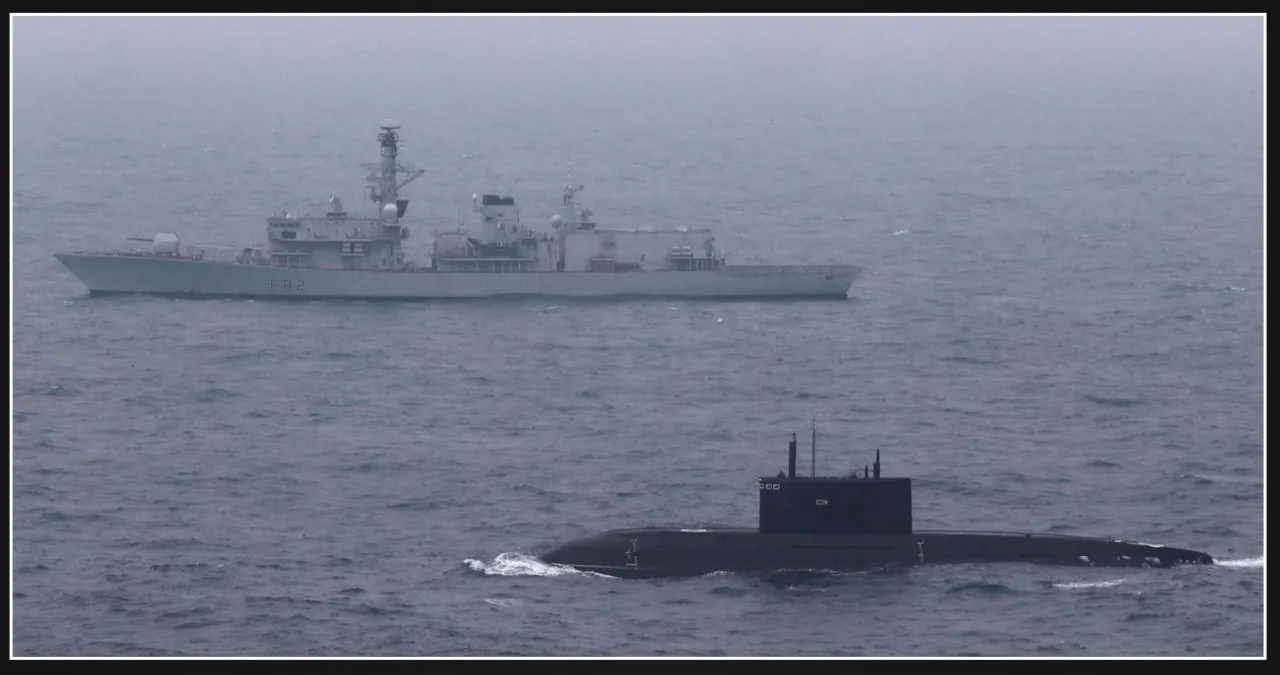Defence Secretary John Healey has expressed strong words following an incident where a British submarine had to warn off a Russian spy ship in UK waters. He delivered a clear message to Russia, stating, “We are fully aware of your activities, and we will not hesitate to take strong measures to safeguard our country.”
During the lead-up to the complete invasion of Ukraine in 2022, Western leaders did inform Vladimir Putin about their awareness of his actions. However, the crucial aspect lies in the implementation of substantial consequences that would deter the Kremlin from proceeding with its plans. Without a credible threat of meaningful repercussions, there was no incentive for Putin to refrain from carrying out the invasion.
Healey’s proposed alteration to the “rules of engagement” serves as a direct message to Russia. However, whether Russia will take heed of this warning remains uncertain. A similar scenario unfolded in 2015 when Turkey explicitly communicated its rules of engagement to Russia, as a response to frequent violations of Turkish airspace by Russian military aircraft operating in Syria. Russia initially disregarded these warnings until Turkey ultimately took the drastic measure of shooting down one of their aircraft. Subsequently, Russia began to regard Turkish warnings with greater respect.
The true nature of the activities carried out by the Yantar spy ship in the UK’s sub-sea infrastructure remains shrouded in secrecy, making it difficult to ascertain the exact intentions behind its operations. It is unclear whether the ship has been engaged in reconnaissance, searching for potential vulnerabilities, or if its presence is merely a display of power to gauge Britain’s reaction.
The concern over the potential damage that Russia could inflict on the economies of various countries by targeting subsea cables is not a new issue. In response to this ongoing concern, the UK’s Joint Committee on the National Security Strategy has recently initiated an inquiry into the nation’s capability to safeguard its undersea infrastructure.
The underwater confrontation is undeniably escalating, as evidenced by the increased intensity. In response to the cutting of several undersea cables by vessels in Russia’s “shadow fleet” of oil tankers, Nato has taken significant measures to boost its maritime operation in the Baltic Sea. This action was particularly prompted by the most recent incident occurring on Christmas Day.
The UK is facing a public expectation to safeguard its own waters. However, there are concerns about the diminished capacity of the Royal Navy to fulfill this role, especially with a significant number of the country’s warships and advanced combat aircraft being deployed to the Far East in the near future.
Russia will persist in investigating and experimenting, both in maritime and other areas. It is not surprising that there is increasing concern about the government’s reluctance to consider the necessary defense expenditure that other nations facing Russian threats deem crucial to deterring or surviving a potential conflict.
The British policy may be undergoing a change as they have chosen to bring public attention to the incident. In Europe, efforts to evaluate the extent of Russia’s covert campaign have been hindered by the varying approaches of different countries in either publicizing or concealing such incidents and their corresponding responses.
Closer to Russia, countries like Poland have been more proactive in exposing Moscow’s campaigns and informing their public about the potential risks. This was evident when Poland’s intelligence services revealed Russia’s plan to plant incendiary devices on cargo aircraft. Unlike Germany or the UK, where the devices did not go off in warehouses, it was Poland that shed light on the overall scheme. This pattern suggests that countries with a greater proximity to Russia and a heightened awareness of the consequences of Moscow’s actions are more inclined to share information with their citizens.
The UK public lacks awareness of the potential harm that Russia could inflict upon the country and the specific scenarios in which it may decide to do so.
In contrast to previous centuries, the UK cannot rely on distance to safeguard itself from potential attacks. The ongoing war on the far end of the continent does not guarantee immunity from harm. Russia has been diligently developing the capability to inflict damage through warships, submarines, and aircraft, even at distances spanning thousands of kilometers.
When Russia is prepared to launch missiles at NATO members, the United Kingdom becomes an appealing target. This is due not only to potential vulnerabilities in its defenses but also because of its significant role in uniting and leading European opposition to Russia.
Russia’s ability to cause harm to Britain extends beyond missiles and spy ships. The country’s cyber power has also been identified as a threat to critical infrastructure, specifically the energy grid. Urgent warnings in late 2024 highlighted the potential consequences of a cyber attack on this crucial system.
Russia is currently engaged in a lower-level conflict with Europe. Instead of directly conducting operations, Russia utilizes proxies, making it easier to deny their involvement. This approach involves not only the armed forces but also law enforcement agencies, who play a crucial role in safeguarding the citizens and infrastructure of the targeted countries.
Finland’s response to the major cable-cutting incident in the Baltic at the end of 2024 has been crucial. While the investigation is still ongoing, they have taken decisive actions to deter future incidents. By impounding the vessel and initiating a criminal prosecution for the damages caused, Finland is showing that there will be consequences for the proxies involved, rather than solely targeting the Kremlin.
The best approach for dealing with incidents in the UK, like drone flights causing disruption over airports and security alerts over British and US airbases, is to have strong intelligence, clear situational awareness, and well-prepared and well-resourced law enforcement. These measures should be informed by the growing threat.

